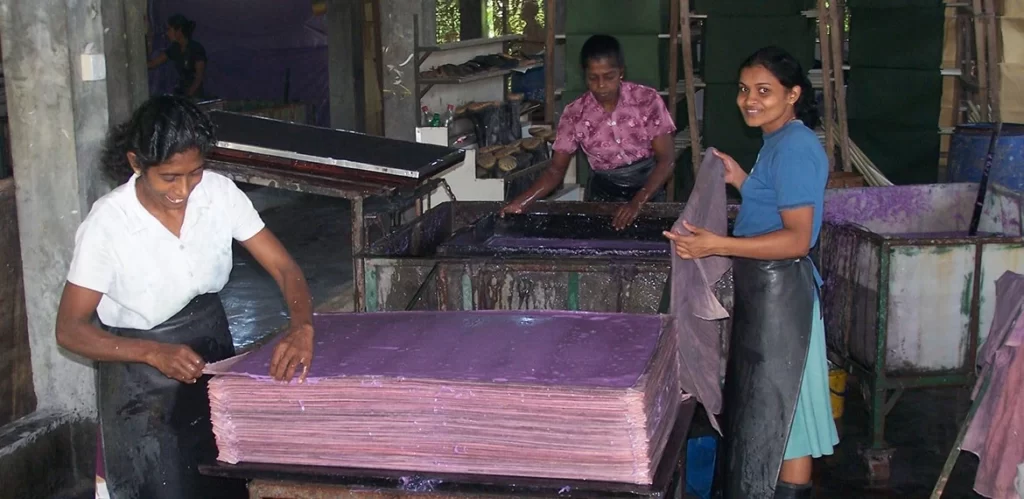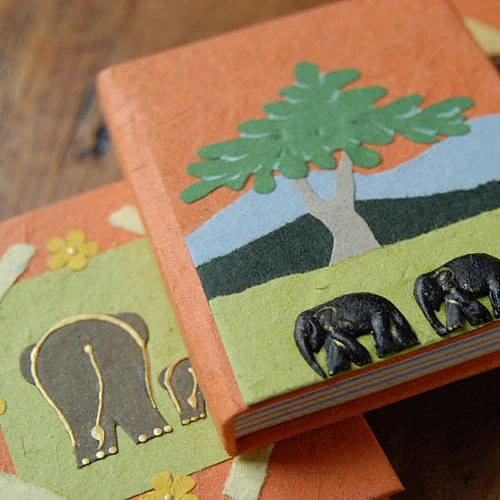By: Anika Tasnim Nishat
Have you ever thought of making papers from elephant dung? Well it might seem like out of one’s mind but it is for real. It began its journey to a new destination in Sri-Lanka around 1997 and has gone viral for adopting a genius idea of generating handmade papers out of animal waste. It is not only helping the environment to sustain longer but also has opened up a very new employment chain for the people living in Sri Lanka.
The Leading Intention
Elephants and villagers of Sri Lanka keep up with each other over scare land resources causing casualties on both facets. Crops are severely affected by elephant attacks frequently in that area and so does it hamper the agriculture. Even though elephants are seen as national wealth of Sri Lanka, the continuous loss it has been causing to its local people was the only reason for the people thinking of that animal more like a threat rather than an asset. Thus, Eco Maximus dived in! It’s a sustainable industry that saves the earth from deforestation as well as employs local people to make papers and the finished products. We can even see this as an eco-friendly approach which is helping people to encourage using recycled papers. It gives us a very important insight about combating climate change through not cutting any trees for producing papers.

How is the Paper being made?
The process is super simple! Elephants can produce around 100 kg of dung every single day so it’s easier to collect as much as it’s needed. So, the manure is sun-dried firstly and after that sanitized by bubbling it at 120 degrees in a fixed high-weight kettle.
The mash is then blended to separate the filaments. Reused office squander is then included for consistency, before being spread on to submerge screens to make sheets of paper. No blanches or acids are utilized in the generation of the paper with salt colors used to make the wonderful hues. So, basically the simplest way to describe the technique is ‘dry-clean-tinge-spread-compress’.
Entirely Natural, Recyclable and Bio-degradable product
Since we’re concerned about combating climate change, it’s been long we thought of looking at our own used products that are causing it to harm the climate and force it to change. Papers are usually made out of trees that causes trees to be cut down. The number of trees cut down per year is just so big that there’s no statistic been found out which says the exact number. Approximately 2 million trees are killed each year roughly. If we could replace the use with the paper made out of elephant dung which is absolutely eco-friendly and recyclable, it might create a big change out of itself and thus would likely to help the trees to grow. It is benefiting especially Sri-Lankan Elephants to live as local people were almost likely to kill them as it was hampering their agriculture as well as their livelihoods. But now, enlarging this industry in the country is saving elephants, employing local people especially women and protecting environment as well.

Initially, the experiment of making paper from dung was done by collecting elephant dung from Millennium Elephant Foundation which works to provide sanctuary, medical services and care to the working elephants. However, the profits from selling the papers directly goes to the villagers’ income who work in there as well as to the foundation.
Awards & Honors
Maximus has been receiving awards and honors innumerably. Some of the greatest achievements it has got was winning the BBC World Challenge, a global competition for small enterprises that has contributed innovations at grassroots level. In addition, it has won the Greening America “Green Authority Award” for its endeavors to fabricate the more socially just and environmentally reasonable economy. This process of making papers is more likely to conserve elephants along with an incentive to make a profit out of it. Turns out Elephants are the living eco-friendly paper mills which protects nature from deforestation and helps combating climate change in that way.

